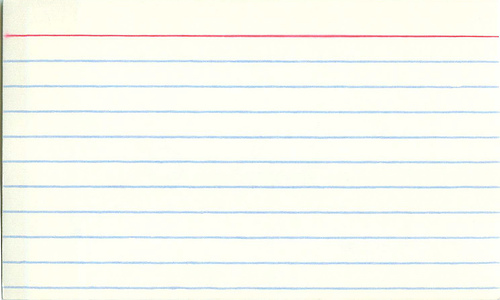I’m at that point where it’s time to take the notes and outlines I’ve generated for my dissertation and start putting readable text on paper. I should be psyched, but I’m terrified. It’s like jumping off a cliff using a bungee cord made of dental floss.
Up until now, my dissertation has existed only in my own head, and as long it stays there, it can remain the platonic ideal of everything I want it to be. But once I actualize it, it’ll never live up to that ideal. It will only be as good as my own shortcomings as a researcher and writer allow. The longer I delay putting words on paper, the longer I can avoid the dismay of realizing how far short of the ideal it’ll fall.
That’s always been the single greatest obstacle to my productivity. The same fear of actualizing a project plagues me whenever I try to write something. After I finished my master’s thesis, I could’ve turned it into a couple of scholarly articles in a matter of months, since the research and writing was more or less done. But it literally took me years to send one of the chapters off for publication. It didn’t take years to do the revisions, mind you, but to muster up the gumption to sit down and see it through. I had the same experience trying to turn a seminar paper into an article draft this past summer…and again this past week, while trying to figure out how to articulate this dilemma for the blog post you’re now reading. A good third of the posts I start to write for this blog end up in the trash bin for that same reason.

Lyman C. Draper, via Wikimedia Commons
This is one reason I’ve always felt a kind of kinship with nineteenth-century antiquarian Lyman Draper. Like me, Draper was fascinated by the early frontier. Also like me, he had a special affinity for the King’s Mountain; the only book he saw through to publication was a history of the battle. He accumulated enough material, however, to write a shelf full of books on pioneers and frontier battles. In fact, he conceived a number of book-length projects over the years: biographies of Daniel Boone and George Rogers Clark, a volume of “border forays,” collected sketches of prominent frontiersmen, and so on.
But he couldn’t bring any of them to completion. Even the one book he managed to get published was plagued by delays. Draper set out to write his King’s Mountain study at the instigation of colleagues who wanted him to get it out in time for the battle’s centennial. He missed it by a year, in spite of his publisher’s incessant pleas to hurry things along. He just couldn’t stop tweaking, double-checking, and accumulating more and more data.
Historians have attributed Draper’s lack of publications to a number of factors. First and foremost, he was a collector and aggregator, happiest when he was transcribing manuscripts and interviewing pioneers and their descendants. He was also an obsessive fact-checker who insisted on verifying every obscure scrap of local tradition he came across. Finally, he had a streak of hypochondria a mile wide, and his repeated bouts with illnesses both real and imaginary interrupted his workflow.
But I think part of the problem was simple anxiety of the same sort that paralyzes me when I try to write out a piece of research. The problem wasn’t that Draper had a poor work ethic. He approached the task of chronicling frontier history with an almost religious zeal. And I suspect it was that very zeal that helped do him in. He knew he was sitting on a goldmine of material, and I think he feared that when he set pen to paper the results wouldn’t do his sources justice. It was easier to go on collecting, and to let the platonic ideal of his book projects live on in his head and in his notes, where they could remain unsullied. And, to be honest, Draper was a much better aggregator than a writer; his King’s Mountain book is more valuable for the material contained therein than as a work of historical literature.
Draper is one of my personal heroes, but he also serves as something of a cautionary tale. For as long as I can remember—for much longer than I’ve wanted to be a historian, in fact—I’ve wanted to find things out and then write books about them. But I’ve idealized the process of research and writing to such an extent that actually doing it paralyzes me to the point of inaction.
Being in grad school has helped, since I’m accountable to people who don’t hesitate to kick me in the pants when I’m not generating drafts. And I feel better knowing I have access to professional mentors who can critique my work before I send it off for publication. Once they tell me it’s up to snuff, I can let go of some of my own nagging feelings that it’s inadequate.
They say a pretty good project that’s completed is better than an outstanding one left undone. And as far as one’s CV is concerned, I’m sure that’s true. The hard part is internalizing that fact enough to put it into action.
And on that note, I need to get back to work.







